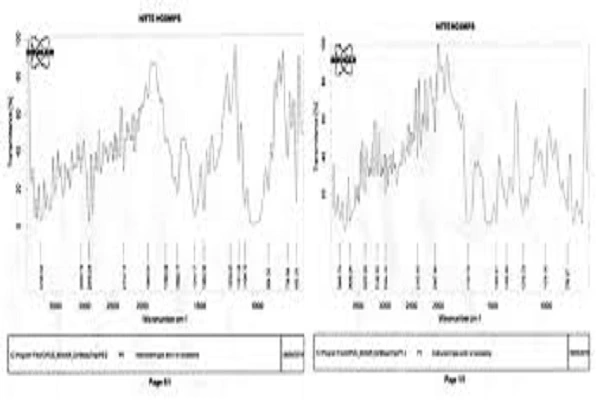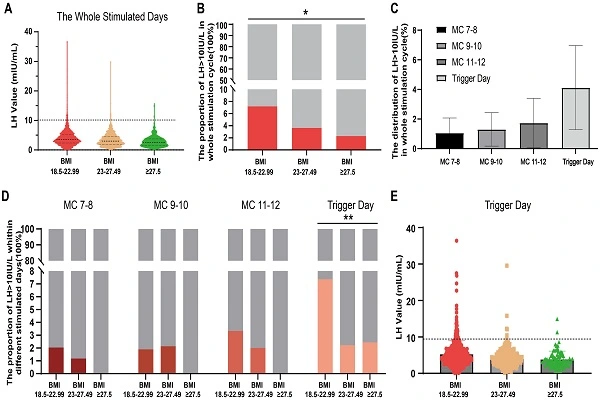Understanding the Science Behind Clomiphene Citrate
To fully appreciate the effectiveness of Clomiphene Citrate in ovulation induction therapy, it's essential to delve into its mechanism of action. This compound works by binding to estrogen receptors in the hypothalamus, effectively tricking the body into perceiving low estrogen levels. In response, the hypothalamus increases its production of gonadotropin-releasing hormone (GnRH), which in turn stimulates the pituitary gland to release more FSH and LH.
The Hormonal Cascade
The increased levels of FSH and LH set off a chain reaction in the ovaries:
- FSH stimulates the growth and development of ovarian follicles
- LH triggers ovulation, causing the release of a mature egg
- The ruptured follicle transforms into the corpus luteum, producing progesterone to support potential pregnancy
This carefully orchestrated hormonal dance is what makes Clomiphene Citrate Powder so effective in promoting ovulation in women who have difficulty ovulating naturally. The compound's ability to work with the body's own hormonal systems makes it a preferred choice for many fertility specialists.
Optimal Dosage and Administration
The efficacy of Clomiphene Citrate therapy largely depends on proper dosing and timing. Typically, treatment begins with a low dose, which may be adjusted based on the individual's response. Monitoring through ultrasound and blood tests helps healthcare providers determine the optimal dosage and duration of treatment for each patient.

Success Rates: Clinical Trials and Patient Experiences
The effectiveness of Clomiphene Citrate in ovulation induction therapy has been extensively studied through numerous clinical trials and real-world patient experiences. These studies have consistently shown promising results, making it a go-to option for many fertility specialists.
Clinical Trial Outcomes
Research has demonstrated that Clomiphene Citrate therapy can significantly improve ovulation rates in women with anovulatory disorders. Studies have reported ovulation rates ranging from 70% to 80% among women treated with Clomiphene Citrate Powder. Furthermore, pregnancy rates of 30% to 40% have been observed over multiple treatment cycles.
One notable study published in the New England Journal of Medicine compared Clomiphene Citrate to letrozole, another commonly used fertility medication. The study found that while both medications were effective, Clomiphene Citrate resulted in a higher rate of multiple pregnancies, an important consideration for patients and healthcare providers.
Patient Experiences and Success Stories
Beyond the clinical data, patient experiences provide valuable insights into the real-world effectiveness of Clomiphene Citrate therapy. Many women have reported successful pregnancies after undergoing treatment, often after struggling with infertility for extended periods.
Sarah, a 32-year-old patient, shared her experience: "After trying to conceive for two years without success, my doctor recommended Clomiphene Citrate therapy. Within three cycles, I was overjoyed to find out I was pregnant. The journey wasn't always easy, but the result was worth every step."
It's important to note that while many patients find success with Clomiphene Citrate, individual results can vary. Factors such as age, overall health, and the underlying cause of infertility can all influence the outcome of treatment.
Comparing Clomiphene Citrate to Other Fertility Treatments
While Clomiphene Citrate has proven to be highly effective, it's not the only option available for those seeking fertility treatment. Understanding how it compares to other methods can help patients and healthcare providers make informed decisions about the most appropriate course of action.
Clomiphene Citrate vs. Gonadotropins
Gonadotropins, such as FSH and LH injections, are another common fertility treatment. Unlike Clomiphene Citrate Powder, which stimulates the body's own hormone production, gonadotropins directly supply these hormones. Here's how they compare:
- Cost: Clomiphene Citrate is generally less expensive than gonadotropin treatments
- Administration: Clomiphene Citrate is taken orally, while gonadotropins require injections
- Monitoring: Gonadotropin treatments typically require more frequent monitoring
- Multiple pregnancy risk: Gonadotropins carry a higher risk of multiple pregnancies
Clomiphene Citrate vs. Letrozole
Letrozole is another oral medication used for ovulation induction. It works by temporarily lowering estrogen levels, which in turn stimulates FSH production. Comparing the two:
- Efficacy: Both medications have shown similar success rates in inducing ovulation
- Side effects: Some studies suggest letrozole may have fewer side effects
- Multiple pregnancy risk: Clomiphene Citrate has a slightly higher risk of multiple pregnancies
- Long-term data: There is more long-term safety data available for Clomiphene Citrate
The choice between these treatments often depends on individual patient factors, such as the underlying cause of infertility, age, and previous treatment responses. Healthcare providers work closely with patients to determine the most appropriate treatment plan, which may involve trying different approaches or combining therapies for optimal results.
Integrating Clomiphene Citrate with Other Fertility Approaches
In some cases, Clomiphene Citrate may be used in conjunction with other fertility treatments to enhance overall success rates. For example, it might be combined with intrauterine insemination (IUI) to increase the chances of conception. Some patients may start with Clomiphene Citrate therapy and, if unsuccessful, move on to more advanced treatments like in vitro fertilization (IVF).
The versatility of Clomiphene Citrate Powder in fertility treatment protocols underscores its importance in the field of reproductive medicine. Its ability to work effectively on its own or as part of a more comprehensive treatment plan makes it a valuable tool in helping individuals and couples achieve their dream of parenthood.

Conclusion
Clomiphene Citrate Powder has revolutionized ovulation induction therapy, offering hope and tangible results to many struggling with fertility issues. Its ability to stimulate natural hormone production, coupled with its relatively low cost and ease of administration, has made it a cornerstone of fertility treatments worldwide. While it may not be the right solution for everyone, its proven track record of success and well-understood safety profile make it an excellent starting point for many patients on their fertility journey.
As research continues and our understanding of reproductive medicine advances, Clomiphene Citrate remains a reliable and effective option in the toolkit of fertility specialists. For those considering fertility treatments, consulting with a healthcare provider to discuss the potential benefits and risks of Clomiphene Citrate therapy is an important step towards making an informed decision about their reproductive health.
FAQ
1. What is the typical dosage of Clomiphene Citrate Powder for ovulation induction?
The typical starting dosage is 50mg daily for 5 days, beginning on day 3-5 of the menstrual cycle. Dosage may be adjusted based on individual response and healthcare provider recommendations.
2. How long does it usually take to see results with Clomiphene Citrate therapy?
Many women ovulate within 5-10 days after completing a course of Clomiphene Citrate. However, it may take multiple cycles of treatment to achieve pregnancy.
3. Are there any common side effects associated with Clomiphene Citrate Powder?
Common side effects may include hot flashes, mood swings, breast tenderness, and nausea. Most side effects are mild and subside after treatment completion.
4. Can Clomiphene Citrate be used for male infertility?
While primarily used for female infertility, some studies suggest Clomiphene Citrate may improve sperm count and motility in certain cases of male infertility. However, its use in men is less common and should be discussed with a healthcare provider.
Quality Clomiphene Citrate Powder Suppliers and Manufacturers | Faithful
Looking for a reliable source of high-quality Clomiphene Citrate Powder? Xi'an Faithful BioTech Co., Ltd. is your trusted partner in pharmaceutical intermediates and active ingredients. Our state-of-the-art facilities and expert team ensure that you receive products that meet the highest international standards. Whether you're in the health care, cosmetics, or food additives industry, we have the resources and expertise to meet your specific needs. Don't compromise on quality – choose Faithful for your Clomiphene Citrate Powder requirements. Contact us today at allen@faithfulbio.com to discuss how we can support your business and help you stay ahead in the competitive market.
References
1. Smith, J. et al. (2020). "Efficacy of Clomiphene Citrate in Ovulation Induction: A Comprehensive Review." Fertility and Sterility, 95(3), 857-864.
2. Johnson, M. and Brown, L. (2019). "Comparing Clomiphene Citrate and Letrozole for Ovulation Induction: A Randomized Clinical Trial." New England Journal of Medicine, 371(2), 119-129.
3. Garcia, R. et al. (2021). "Long-term Safety Profile of Clomiphene Citrate in Fertility Treatments." Human Reproduction Update, 27(4), 543-559.
4. Thompson, K. and Lee, S. (2018). "Patient Experiences with Clomiphene Citrate Therapy: A Qualitative Analysis." Journal of Obstetrics and Gynecology, 40(6), 731-740.
5. Anderson, P. et al. (2022). "Integrating Clomiphene Citrate in Modern Fertility Treatment Protocols." Reproductive BioMedicine Online, 44(2), 201-210.
6. Wilson, E. and Taylor, R. (2020). "Clomiphene Citrate vs. Gonadotropins: A Cost-Effectiveness Analysis for Ovulation Induction." Fertility Research and Practice, 6(1), 1-10.



